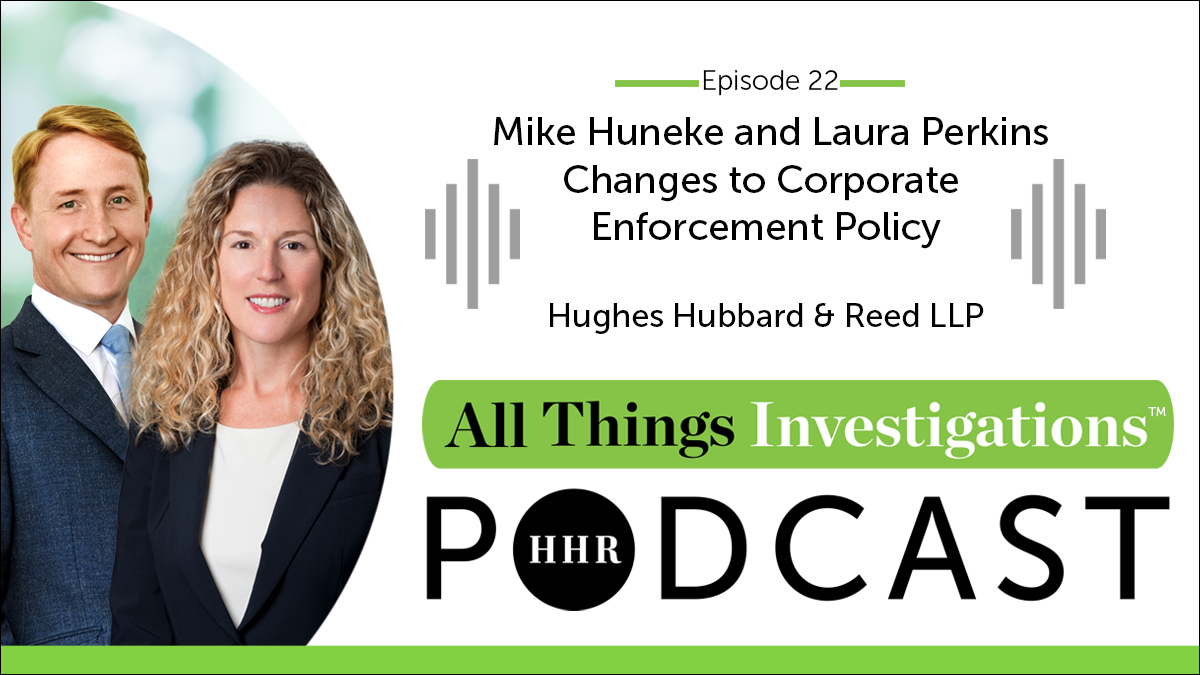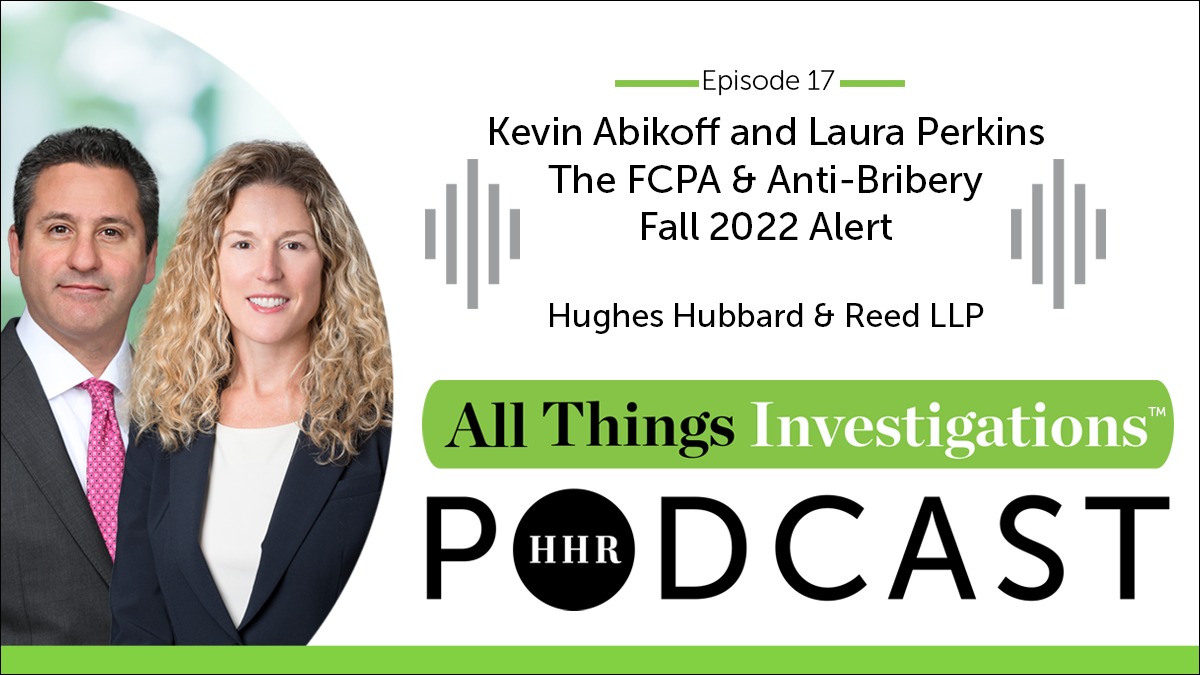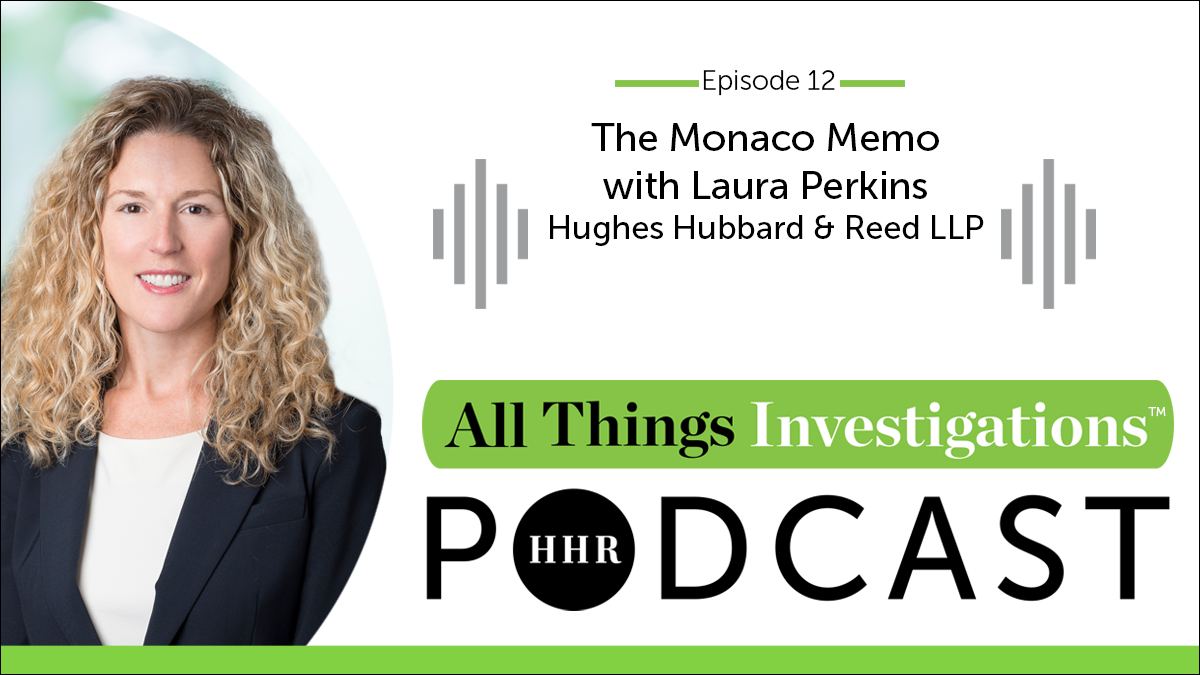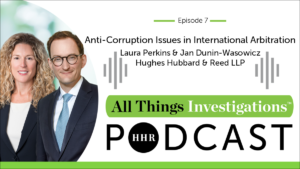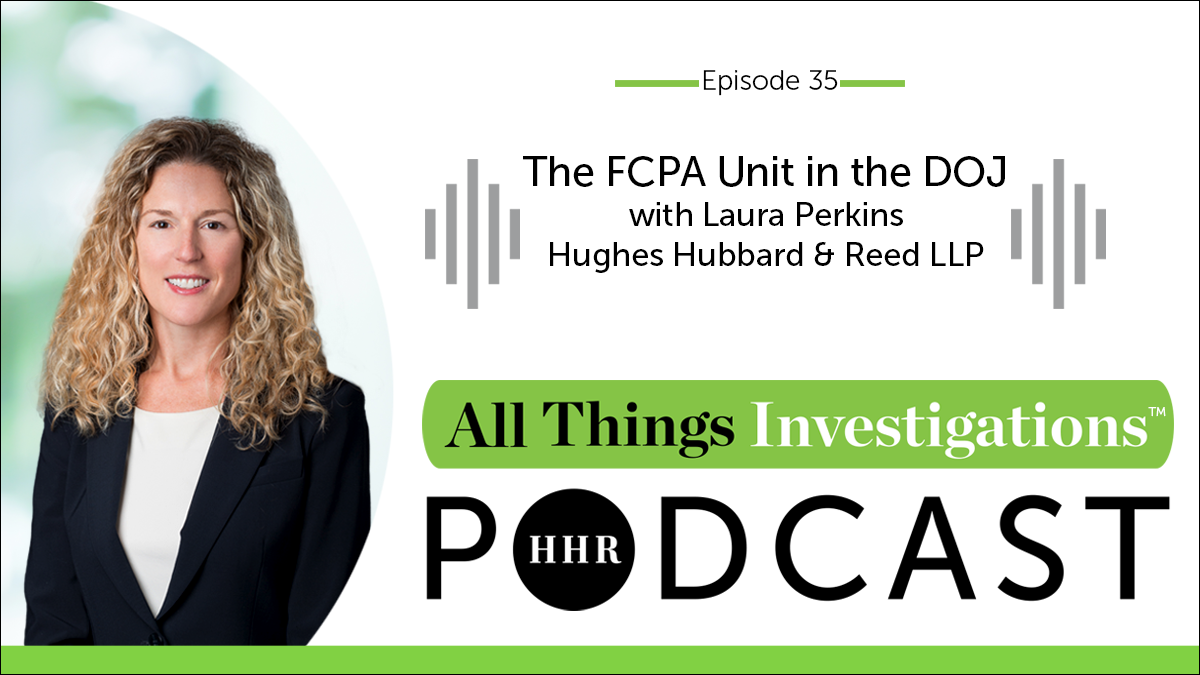
In this episode of All Things Investigations, Tom Fox and Laura Perkins delve into the workings of the FCPA unit within the fraud section of the Department of Justice. This unit, pivotal in investigating and prosecuting Foreign Corrupt Practices Act violations, operates within a robust hierarchy and collaborates extensively with other agencies.
Laura Perkins is a Hughes Hubbard partner whose practice focuses on representing clients in Foreign Corrupt Practices Act and white collar criminal investigations. She also advises clients on issues related to the FCPA, the federal securities laws, the False Claims Act, and other federal statutes.
You’ll hear Tom and Laura discuss:
- There was a recent transition in leadership within the DOJ’s FCPA unit, with an acting head taking the reins. Such changes can potentially shift the direction or focus of the unit.
- The FCPA unit maintains a collaborative approach, liaising closely with other agencies such as the IRS, FBI, and the Department of State, ensuring a holistic investigative process.
- Despite being two distinct units, the DOJ’s FCPA and the SEC’s FCPA work closely during parallel investigations. However, certain limitations arise from grand jury issues, preventing complete sharing.
- Operating within the fraud section, this unit plays an instrumental role in evaluating corporate compliance programs, selecting compliance monitors, and contributing to policy developments and department-wide initiatives.
- The Corporate Enforcement, Compliance, and Policy Unit has the task of handling FOIA requests, underscoring its role in promoting transparency and information access.
- The relationship between the chief of the FCPA unit and the head of the fraud section is important as their interactions can potentially influence the direction and outcome of cases.
- The fraud section provides weekly case summaries to the Deputy Assistant Attorney General’s office. This demonstrates the department’s diligent and ongoing monitoring and reporting system.
- The FCPA unit doesn’t operate in isolation; it partakes in international collaborations on bribery issues, highlighting its commitment to global anti-corruption efforts.
KEY QUOTES
“[In] the FCPA unit, prosecutors and supervisors handle investigations and cases involving Foreign Corrupt Practices Act or potential Foreign Corrupt Practices Act violations.” – Laura Perkins
“[The DOJ and SEC have] a very close relationship, and often cases are worked in parallel, not necessarily jointly, because there are potential discovery issues that can be created if it’s a joint investigation.” – Laura Perkins
“The [Corporate Enforcement, Compliance and Policy Unit] has a major role in assisting prosecutors in evaluating corporate compliance programs as well as overseeing any compliance monitors that are put in place.” – Laura Perkins
Resources
Hughes Hubbard & Reed website
Laura Perkins on LinkedIn


